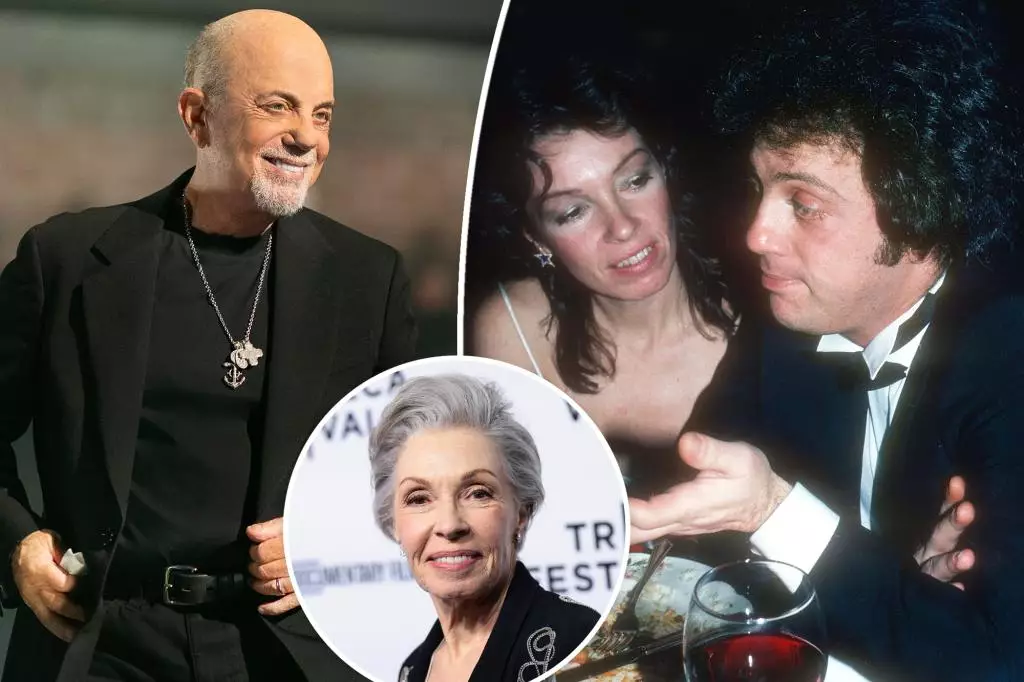Billy Joel’s life story is one punctuated by remarkable highs, profound lows, and the complexities of human relationships. Recently, his first wife, Elizabeth Weber, made headlines not just for her connection to the iconic musician but for her candid reflections on their past. At the premiere of the documentary “Billy Joel: And So It Goes,” Weber’s remarks provide insight not only into her relationship with Joel but also into the broader context of celebrity culture and personal growth.
Understanding the Rifts of Love
Weber’s comments reveal a critical aspect of love and divorce—the uncomfortable truth that many relationships end for valid reasons. The acknowledgment that they are “friendly but not close” speaks volumes about the inevitable distance that can emerge even after shared experiences and deep emotional connections. Their decade-long marriage from 1973 to 1982 remains a chapter in both their lives that shaped who they became, yet it also exemplifies the challenging dynamics of personal transformation post-relationship. Marriage is often seen as a culmination of love, but Weber’s remarks highlight that love can often morph into something less intimate, especially when life paths diverge.
Billy Joel, a man of immense talent, has also had his share of marital struggles, with three subsequent marriages following Weber. Each relationship delineates different phases of his life, touching upon themes of love, loss, and recovery. The notion that he has been married to four different women suggests a search for companionship and understanding that transcends mere romantic engagements.
The Burden of Public Perception
Weber bravely pointed out the difficult terrain women often traverse in the realm of rock and roll and the music industry as a whole. Her comments underscore an ongoing discourse on gender dynamics in public life and the expectations set upon women within the entertainment sphere. “Rock ‘n’ roll isn’t really good to women,” she remarked, shedding light on an issue that continues to plague the industry. This awareness calls for a broader dialogue about how society perceives women’s roles, not only as partners but also as individual entities deserving of respect and validation.
Weber’s reflection upon her life and career also hints at a profound understanding of what it means to forge one’s path independent from a well-known partner. She distanced herself from the negative shadows of their past and emphasized personal agency. This attitude counters the often one-dimensional narratives surrounding women connected to famous men, suggesting that they too have their own stories worthy of recognition.
Art as Therapy: Songs and Healing
One of the most poignant aspects of Joel’s musical legacy is his ability to turn personal experiences into universal anthems. The song “Just The Way You Are,” originally written for Weber as a birthday gift, has transformed over the years into an emblem of complex relationships. The irony of Joel’s drummer playfully mocking the lyrics post-divorce highlights the music world’s tumultuous merging of the personal and the public. In this context, Weber’s perspective is enlightening; she expresses pride in the song’s success while also acknowledging that it has endured beyond their relationship.
Yet, the reluctance of Joel to perform the ballad after their split reveals a deeper emotional complexity, as if the pain of their past lingers in the melodies. Music has an unparalleled ability to act as an emotional conduit, and Joel’s experiences with efficacy can be reflective of his struggles to reconcile his tumultuous feelings with his artistic expression.
A Journey of Growth
In her interview, Weber provides a refreshing, grounded perspective on fame’s often-glamorized image. Commenting on the effects of public scrutiny, she underscores a key truth about personal evolution: “I have my life, I do what I do, and I can’t really be concerned about [anything else].” This mantra embodies resilience, suggesting that true empowerment comes from finding solace within oneself rather than seeking external validation.
Both Weber and Joel reside in worlds shaped by their joint past and individual futures. While they may not share a close bond today, their experiences as public figures and partners contribute to the narrative of growth, struggle, and ultimately, the human experience. The unfolding of their stories serves as a reminder of the complexity of relationships and the strength it takes to move forward while harnessing one’s legacy. In that regard, Susan Weber stands as a testament to a life lived on her own terms, navigating the complexities of love and its ephemeral nature.

Leave a Reply